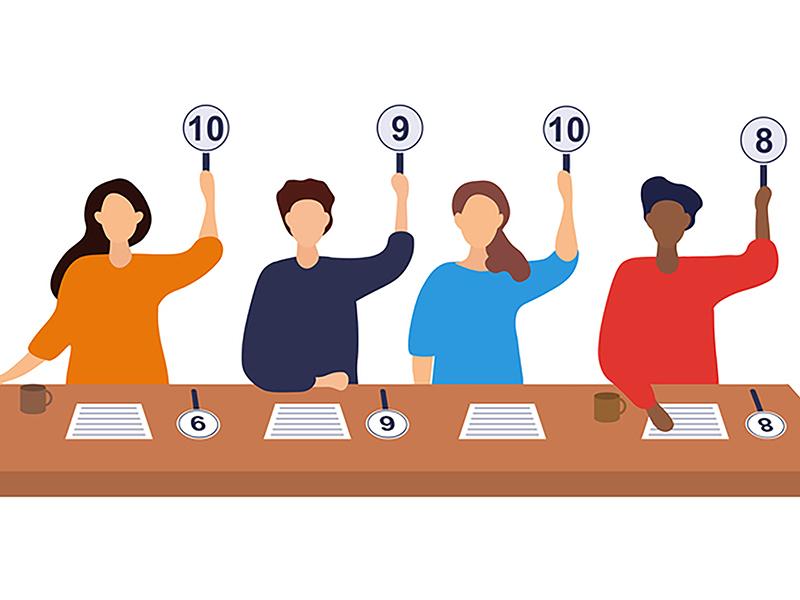
The pros and cons of peer reviewing
Peer review is famously a time-consuming process that requires sufficient expertise in research, writing and whatever subject the paper is on. It’s rare for this hard work to be financially compensated. Nevertheless, many successful and highly sought-after educators choose this role as a part of their career.
Here, I’ll explore the advantages of engaging in peer reviews, as well as challenges to anticipate. This reflection, based on my experience, may help colleagues who are thinking of stepping into the role of reviewer.
Benefits of being a reviewer
Having been a reviewer for educational journals for more than four years, I’ve identified several benefits.
Status and reputation
Peer review is a wonderful opportunity for early-career educators to prove their expertise, raise their status and receive appreciation. Use the reviewer certificates that journals issue to spruce up your portfolio.
- Understanding peer review: what it is, how it works and why it is important
- Don’t be cruel: how to write a fair peer review report
- A DIY guide to starting your own journal
These reviewer certificates are also evidence of engagement in scholarly activity, which can be useful when writing a CV or completing a performance-evaluation record.
Improving skills
Practice makes perfect, and critique and critical thinking are skills that require regular application to improve.
You will also gain experience. Peer review activity perfectly combines the opportunity to practise critical thinking and expand your mind, learning from the papers you’re reviewing.
Beneficence
Educators tend to enjoy teaching others. Peer review allows you to share your expertise and improve the research and writing skills of your peers.
I personally find it rewarding to see how manuscripts evolve based on my suggestions. If I receive an author’s gratitude in response, I feel like my hard work has paid off.
On a broader scale, engaging in peer review elevates the overall quality of scholarly articles in the field of education, which makes it a contribution with far-reaching implications.
Networking
Through professional interaction, a reviewer can get to know the authors better and even be recognised by the editorial team. This could result in joint projects and initiatives.
Learning
Surprisingly, peer review is also a learning opportunity. First, this activity necessitates thorough reading of the paper, which enriches personal knowledge. Second, when reading other reviewers’ comments, it’s a great moment to calibrate personal judgement and compare perspectives.
Aiding personal publishing
Since peer review is rarely a paid activity, journals are eager to reward contributors to article reviews through other means, such as offering a reduced price on your own publications. This bonus can serve as a valid incentive for prospective authors of recognised journals.
The challenges of peer review
We’ve looked at the benefits, but there are also a few challenges to consider when you’re deciding to accept a paper for review.
Time
Thorough peer review is a time-consuming process. You never know at the outset how many rounds of revision might be required. When making a commitment, you need to be prepared to allocate sufficient time for this work.
Expertise
When addressing a review proposal, the editorial board assumes that you are competent regarding the article’s material. A mismatch in expertise might result in a biased judgement on the quality of the paper and this could have negative implications for the authors or the journal’s reputation. For that reason, I personally recommend estimating your level of expertise before accepting a manuscript for review. Skim the abstract or the complete manuscript, which is typically enclosed with the proposal, and gauge your familiarity with the topic and research methodology.
Communication
Interactions with authors can sometimes lead to misunderstandings or negative reactions to feedback. On rare occasions, I’ve encountered resistance to my suggestions or received unprofessional responses. When this happens, don’t take these reactions personally. Fortunately, instances of poor professional ethics are diminishing as awareness of appropriate conduct grows.
There’s no doubt that the role of a peer reviewer is demanding. However, it offers multiple professional and personal benefits, from bolstering one’s reputation to fostering skill and knowledge enhancement. In my opinion, despite the potential challenges related to time commitment and interpersonal issues, the rewards make it a valuable contribution both to the educator’s status and to the growth of the academic community. I highly recommend this role to my colleagues, as it enriches their field while offering them insights and recognition in return.
Arina Ziganshina is head of assessment at Dubai Medical College for Girls.
If you would like advice and insight from academics and university staff delivered direct to your inbox each week, sign up for the Campus newsletter.




